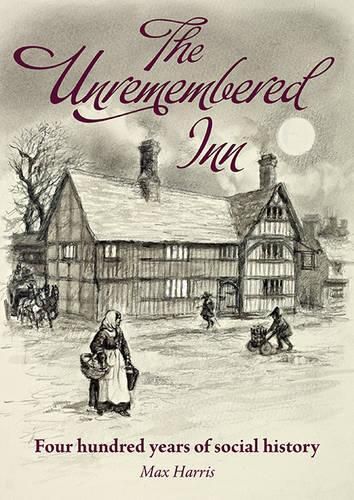Readings Newsletter
Become a Readings Member to make your shopping experience even easier.
Sign in or sign up for free!
You’re not far away from qualifying for FREE standard shipping within Australia
You’ve qualified for FREE standard shipping within Australia
The cart is loading…






The Unremembered Inn traces the social history of a building situated in the High Street of the riverside town of Upton-upon-Severn. It follows the lives of the people associated with the property from the early sixteenth century to the start of the twentieth century, drawing on evidence from title deeds, probate records, numerous cases in the Courts of Chancery and Common law, newspaper and other records to re-enact the lives of these individuals. For the first one hundred and fifty years the building was a small country inn but by the end of the seventeenth century a ‘sales shop’ had been established in the premises. There then followed a long succession of merchants and shopkeepers some of whom succeeded in their business whilst others faltered and sank into debt. Insolvency and bankruptcy were very familiar to these people who regularly resorted to the courts of law to resolve their predicaments. This was a society of ‘dog eat dog’; many individuals had few scruples regarding the acquisition of land, property and money; for some the dreadful prospect of dispossession was never far away.
$9.00 standard shipping within Australia
FREE standard shipping within Australia for orders over $100.00
Express & International shipping calculated at checkout
The Unremembered Inn traces the social history of a building situated in the High Street of the riverside town of Upton-upon-Severn. It follows the lives of the people associated with the property from the early sixteenth century to the start of the twentieth century, drawing on evidence from title deeds, probate records, numerous cases in the Courts of Chancery and Common law, newspaper and other records to re-enact the lives of these individuals. For the first one hundred and fifty years the building was a small country inn but by the end of the seventeenth century a ‘sales shop’ had been established in the premises. There then followed a long succession of merchants and shopkeepers some of whom succeeded in their business whilst others faltered and sank into debt. Insolvency and bankruptcy were very familiar to these people who regularly resorted to the courts of law to resolve their predicaments. This was a society of ‘dog eat dog’; many individuals had few scruples regarding the acquisition of land, property and money; for some the dreadful prospect of dispossession was never far away.